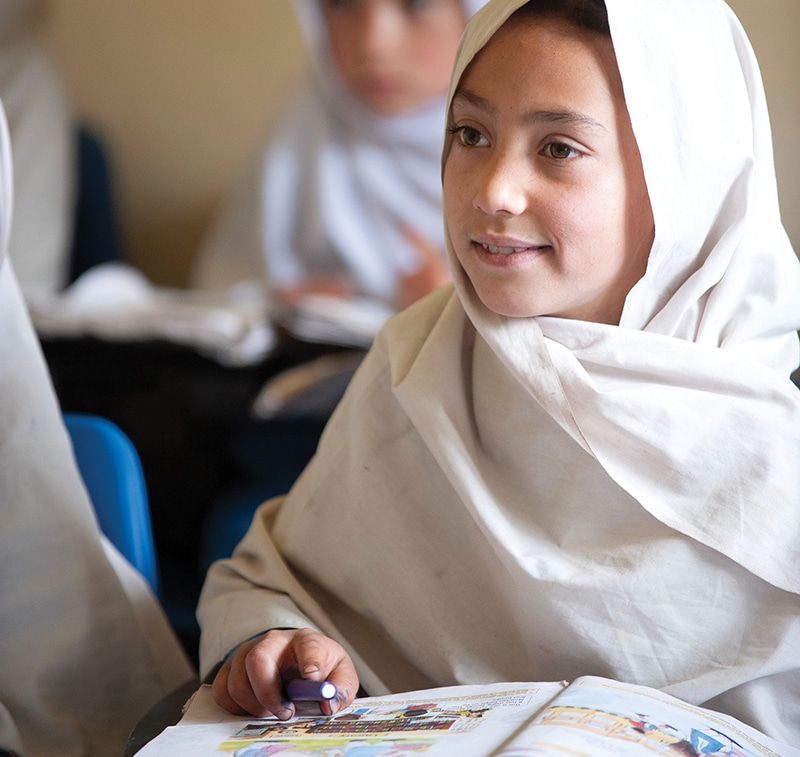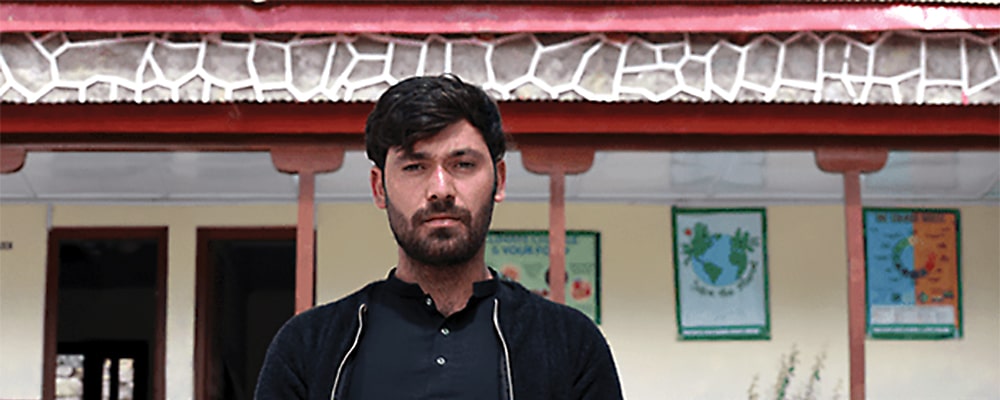Pakistan: From CAI Graduate to CAI Teacher
By Shahzadi Imrana Jalil, Moawin Foundation
When Ayub was a boy living in Haiderabad, a remote village in the mountainous Gilgit-Baltistan region of Pakistan, he attended a primary school supported by CAI. Back then, the Haideria Central Asia Supporting School had no actual building, no walls, and no washrooms. While it lacked the basic infrastructure one would expect of a formal school, what it did have was the dedication and passion of caring teachers, who not only taught Ayub the basics of reading, writing, and math but also inspired him to become a teacher himself.
“I remember there was a teacher named Sir Nazeer, who had a very positive impact on me,” recalled Ayub. “He used to teach children with a lot of love and advised us to work steadily each day.” Another vivid memory that stands out for Ayub is the cricket tournaments the school would organize. “We were quite excited about it, and this made us look forward to going to school.”
Ayub acknowledges that when he was a student, the school lacked many of the facilities and tools children need for an optimal education. But for him, it was enough to get him to continue his education through secondary school and earn his bachelor’s degree. He was so grateful for his experience that he decided to return to his hometown and teach at his old primary school, hoping to give his students the same kind of transformational education he had received.
Due to the continued support of CAI and its partner, the Moawin Foundation, the Haideria School is drastically different today than it was when Ayub was a boy. “There’s a proper boundary wall, and the school building looks beautiful,” he said. And while his teachers mostly had just a basic education, today’s teachers often have advanced degrees. Ayub’s students also have the advantages of internet access and e-learning, which offer a plethora of new tools and resources to broaden their education. Ayub notes, however, that so much more is needed. “In Pakistan, there’s simply not enough budget allocated for education,” he laments. “The education budget should be higher so that children can conduct experiments, visit labs, and become more creative.” He notes that his syllabus often requires him to conduct activities without the proper materials. “For instance, in the science book, there are topics related to chemistry that involve creating solutions. To carry out experiments like checking pH using pH paper or teaching hydrogenation, we require specific items.”

Ayub is grateful for the way CAI and the Moawin Foundation have stepped in to provide meaningful education and proper schools to supplement what the government is able to offer. He is also appreciative of the professional development support he’s received that has helped to improve his teaching skills. “We received a five-day teaching training where we learned how to teach, manage a classroom, create lesson plans, and understand the principles of Bloom’s taxonomy,” he explained. He and his colleagues were also taught about holistic child development, preserving the environment, mitigating climate change, dealing with child emergencies, and first aid response.
Ayub’s daily routine demonstrates his strong dedication to teaching. “Before heading to school in the morning,
I prepare the lectures to ensure that I am confident while presenting in front of the students,” he said. “When students understand what they are taught, they respond actively. They attempt to solve questions on their own, which brings me immense joy. This continues throughout the day. Later, I tend to some tasks at home, and in the evening,
I also provide tutoring. This way, my day comes to an end.” While his workdays are long, Ayub shows no signs of letting up. For him, his job is just too critical not to give it everything he’s got. “I believe that we are currently in an era of intense competition,” he explained. “Every teacher should strive to make their students highly capable, preparing them to face future challenges successfully.”

